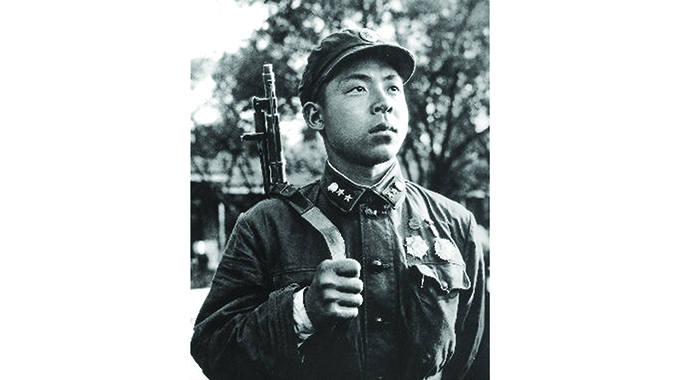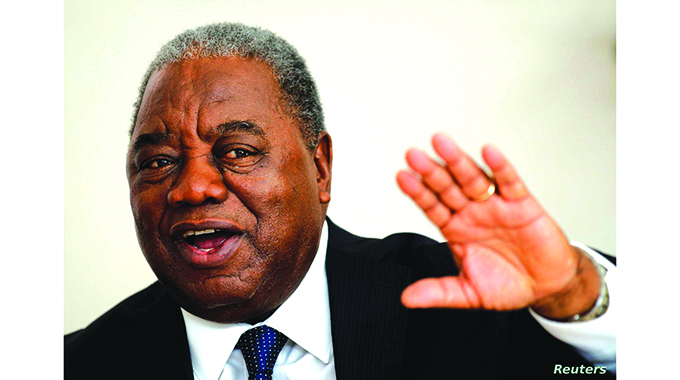A hero among us

Ms G
Every March 5, China honours one of its most loved soldiers.
He was not someone who died a heroic death in the flames of war.
He never threw a grenade or fired a shot; he was not on the fighting frontline. In fact, he was a truck driver and performed no awe-inspiring feat.
But, if my memory serves me right, he is the only member of the People’s Liberation Army of China to have a date specially designated for his memory. His picture was even posted in the US Military Academy at West Point
He was Lei Feng, born to a poor farming family in 1940 before China was liberated. Orphaned at a young age, he knew life the hard way.
Circumstances for him only improved with the founding of the People’s Republic of China, when he was given land, a small house, free education, and the opportunity to learn the skills of operating tractors and bulldozers.
“All of this happened because of the Communist Party of China liberated the nation,” Lei Feng said in his private journal, which was posthumously published.
So in 1960, at the age of 20, he joined the People’s Liberation Army, with the ardent hope of giving back to the cause. Considering his skills in driving, he was sent to the transportation company. But Lei Feng’s dream was to become a real soldier, one who could fight face to face with the enemy.
He went to a senior officer to make his case. The officer asked him, “Do you know in times of war moving ammunition and supplies to the frontline is the most important job?”
Hearing this, Lei Feng was happy again, “Whatever I can do for the revolutionary forces, I will do it. I can even be a boiler fireman or a human shield if it comes to that.”
In his company, Lei Feng was the most devoted to his work. He always pushed himself to the limit, trying to do as much as he could. He was full of ideas too.
One day, he was helping in the kitchen after unloading explosives from his truck. There, he found the earth oven was burning a lot of firewood and producing very think smoke. Being a village boy, he soon thought of an idea which increased the efficiency of the oven, reducing the use of firewood by half.
When his superiors wanted to reward the “clever inventor”, Lei Feng said it was all the cook’s idea. In two years time, he had won a number of honours and awards for his outstanding skills and dedication.
He wrote this in his journal, “You must never forget this — you owe everything you have today to the Communist Party of China.”
Lei Feng was known for his frugality. He had three things to help him lead a simple life. There was the “frugality box”, in which he would keep an assortment of small things he had picked up somewhere for possible use in the future, such as a nail or an emptied toothpaste tube.
He also had a piggy bank to save the coins and a sewing box with which he mended his clothes and even his socks. Every year the army would give out two summer uniforms to its soldiers; but Lei Feng would only take one, although his was already full of patches.
Sometimes he would seem like a pedantic lecturer, reminding his comrades about the importance of being economical, “There are still many in China who are starving; we must be careful in our lifestyle.”
But Lei Feng was very generous about helping others. His monthly allowance in the army was six yuan. But he kept only one yuan for himself and spent the other five yuan either buying books for his comrades or as donation to those in need.
Once he learned a comrade’s father was admitted into the hospital, he quietly sent five yuan to his family. Another time at a train station, Lei Feng, who was waiting for his train, found a woman in tears because she had lost her ticket and wallet. Lei Feng immediate bought her a ticket. When she asked about his name and address, he simply replied, “My name is the PLA. China is my home.”
In 1962, when Lei Feng was only 22 years old, he died in an accident while carrying out a mission. The next year, the country’s top leadership decided to honour his memory.
Chairman Mao Zedong was to write a slogan for him. A few options were prepared by his secretary, such as “we must learn from Lei Feng’s devotion to the people” or “we must remember Lei Feng’s commitment to the revolutionary cause”.
But Chairman Mao did not choose any of them. He said, “Lei Feng cannnot be described with only one or two noble characteristics. He represents many things; because he was consistent throughout his life in doing the small but good things.
“He did everything in his power to serve the people.” The Chairman finally decided on a simple line: We must learn from Lei Feng.
Sixty years on, people in China are “learning from Lei Feng”.
On March 5, students, youngsters, civil servants, and people from all walks of life would look for the chance to do something for those in need of help. Lei Feng was not one of those legendary heroes that make us mere mortals feel insignificant and hard to catch up; he was one of us, a nobody doing an ordinary job. But he showed us how we can all be heroes, even from our humbled positions.










Comments